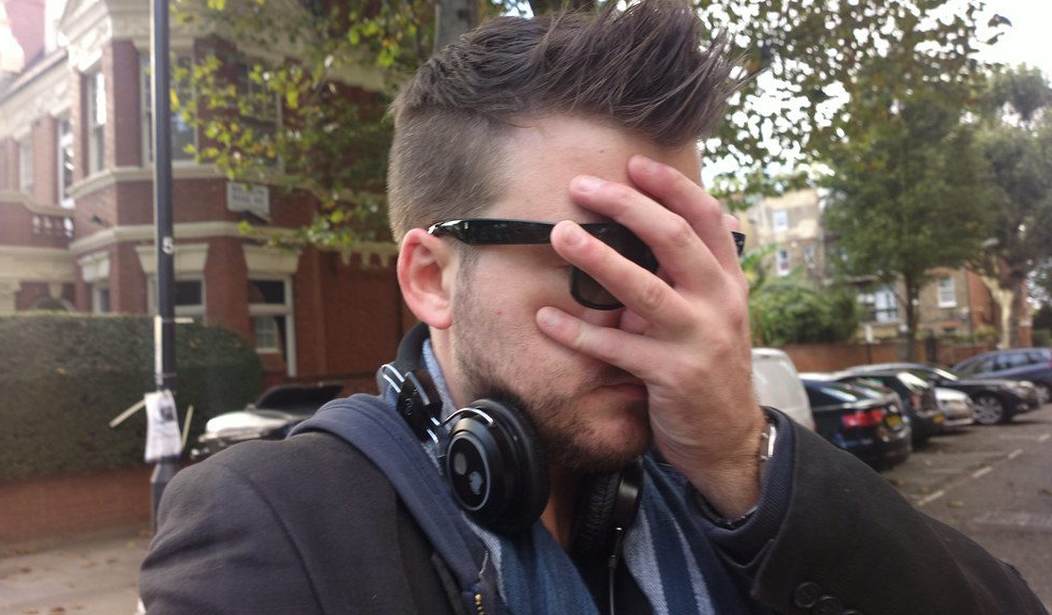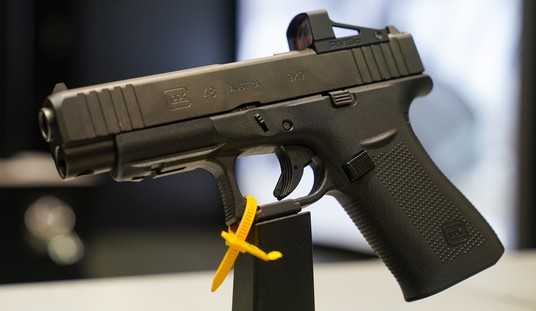In his 1964 book The Conduct of Inquiry: Methodology for Behavioral Science, philosopher Abraham Kaplan laid out what he called the "law of the instrument": Give a small boy a hammer, and he will find that everything he encounters needs pounding.
Columnist Jason W. Park's "hammer" of choice is the Sheehan Homicidality Tracker Scale, and for the second time in less than two months, he's using it to pound on legal gun owners. In a new column for the Pittsburgh Tribune-Review, Parks points to the shooting of eight police officers in Charlotte, North Carolina by a convicted felon who illegally possessed a gun to argue that every lawful gun buyer should be forced to take the 16-question test before they can take possession of their firearm.
In the Charlotte shooting, the suspect had a homicidal hatred of the police, making him mentally unbalanced. He also illegally possessed an AR-15 rifle, which means he was an armed felon. And although the police had him cornered, the suspect was a fugitive from justice and had evaded the police previously.
So, we know there is a problem. But can we put the genie back in the bottle? After all, we cannot force a mentally ill person to take medication and do therapy. We cannot trust a gun-toting felon to follow the law. And we cannot expect law enforcement to be everywhere, all the time.
This is where the Sheehan Homicidality Tracker Scale (S-HTS) can help. It is a 16-question test that detects homicidal tendencies in the test-taker. Properly administered at a gun dealership, the S-HTS would (1) fail the homicidal mentally ill, (2) prevent them from being armed and (3) serve as a proxy for law enforcement.
Park never does get around to explaining how this would have prevented the shooting in Charlotte; maybe because he can't offer a plausible theory. It's the test that Park is really focused on, not the particulars of how an armed violent felon with a lengthy criminal history illegally got ahold of a gun. Back in March, Park suggested that the test should be a mandatory step when buying a gun; in that instance using a federal judge's decision dismissing charges against an illegal alien who possessed a firearm as the nail for his hammer.
In the U.S. since the late 18th century, there has been a longstanding prohibition on guns for the mentally ill and felons, to separate those deemed a danger to themselves or others from guns. The system in place uses Form 4473, which asks about mental health history and felony convictions. Then a background check is run on the three databases comprising the NICS system.
But Form 4473 is not a proper psychological assessment, and the NICS is missing 25% of all felony convictions. A mental health Sociopathy Test and criminal tendency Sheehan Homicidality Tracker Scale, together, are a good option. Both tests would take no more than 15 minutes total for an ATF agent to administer and grade on-site to determine whether the applicant can buy a gun.
As I wrote at the time, Park's bad idea is fatally flawed from a practical perspective, as well as being utterly repugnant to our individual liberties.
In Park's mind, every gun shop in the country has a friendly (or maybe not-so-friendly) ATF agent standing at the counter ready to administer these tests to every prospective customer.
According to the agency, there were about 5,100 employees in 2022, and not all of them are field agents. The ATF also reported that there were 136,563 FFLs in the United States that year, which means that in order to put Park's big idea into place, the ATF would have to increase its staff to more than 26 times its current levels.
That's gonna be a non-starter on Capitol Hill for all but the most vociferous of gun-grabbers. The latest budget deal slashed ATF's budget by 7 percent, so I don't see lawmakers approving a bill that would make the ATF the single largest federal law enforcement agency by far; dwarfing the 10,000 or so DEA agents or the 35,000 FBI employees.
Just as Park never did explain how this test could stop people from illegally getting guns, his recent column fails to address this glaring flaw in his big idea, though he does pay lip service to addressing the Second Amendment argument.
Some would say that the S-HTS infringes upon their rights. But there is a longstanding prohibition keeping the mentally ill and felons away from guns. Eighteenth-century peace officers were authorized to “lock up the lunatics who are dangerous.” If one is not homicidal, the S-HTS will protect one’s second amendment rights.
Yeah, that's the sum of his argument. If you were expecting something more substantive, I share your disappointment. I don't know if Parks is aware of this, but civil authorities still possess the authority to involuntarily commit someone who poses a danger to themselves or others. It's just that it takes more than a $%&ing 16-question test to make that determination. And if someone is adjudicated as a "mental defective", they're prohibited from ever legally purchasing or possessing a firearm in the future (which in itself is a constitutionally dubious statute).
In fact, Park also never tells us what he thinks should happen if a gun buyer fails the test because they demonstrate homicidal thoughts or beliefs. If that's enough to deprive them of their Second Amendment rights, is it enough to lock them up because they're dangerous? Should they be put on a list for government monitoring? Should they be prohibited from possessing other deadly weapons like knives, baseball bats, or billy clubs? Or should the friendly ATF agent parked at the gun counter just tell the buyer "no" and let them walk out the door?
Park needs to put down his homicide-test-hammer and come up with a new tool if he wants to be taken seriously. We're simply not going to have an army of 100,000 or more ATF agents sitting at the counter of every gun shop administering and grading psych tests to determine if a buyer is homicidal. Heck, the creator of the test "does not authorize anyone to provide training to others on the S-HTS who is not a licensed psychiatrist or clinical psychologist (MD or PhD) and who has not been specifically trained and authorized to provide this training to others by Professor Ivan Sascha Sheehan," which would seem to preclude its widespread use by law enforcement agents or its use to determine whether someone should be able to exercise their fundamental civil rights.









Join the conversation as a VIP Member